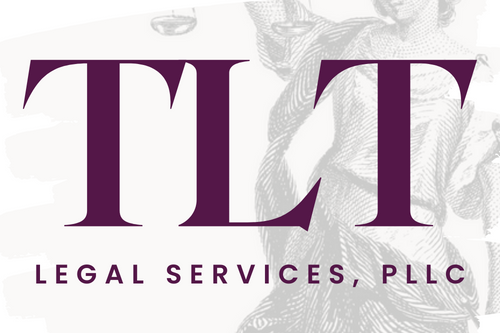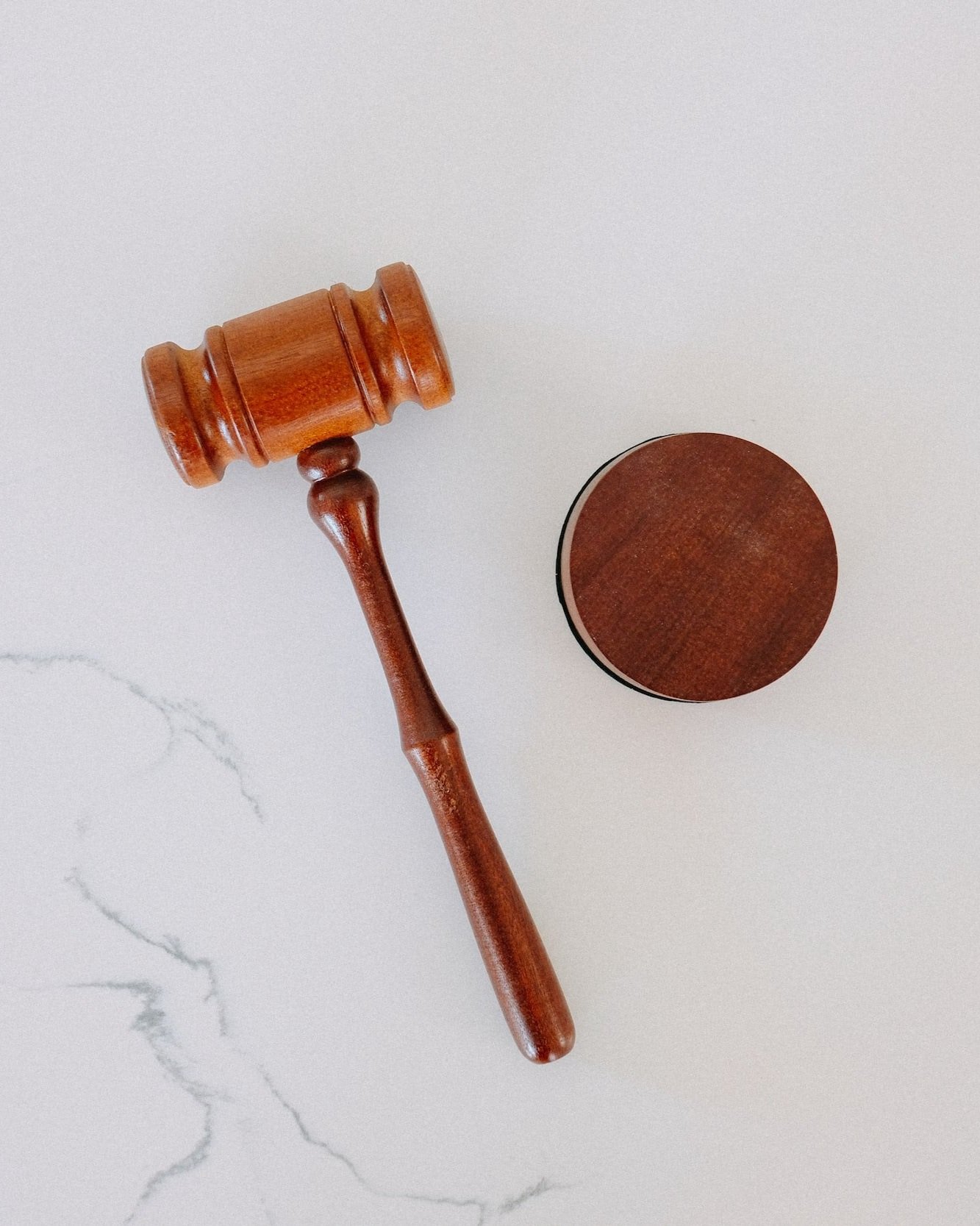
Find personal injury help near you.
How can a personal injury lawyer help with your case? When you hire TLT Legal Services, PLLC, your attorney will work to help you recover compensation for your accident or injury. The best personal injury lawyers will treat you and your case with compassion and experience. Your attorney should also be experienced enough to take legal action against the party who hurt you and their insurance companies in the county where your case is being heard. Fill out a short form to connect with an attorney.
The right attorney can make or break your personal injury case.
So, how do you find a personal injury attorney?
Many people find local attorneys through word-of-mouth from a friend or loved one who used that attorney and had a good experience. Review sites like Google, Avvo, or Justia can also be helpful in finding a personal injury lawyer who is a good fit for you. However, no two cases are exactly the same. That’s why it’s so important that your attorney is licensed and qualified to practice law in the right practice area and in the location where your case will be tried
Within personal injury, some attorneys specialize in certain practice areas such as medical malpractice or cases involving products liability. Others focus more on car crashes and slip and fall accident cases. It is important that the attorney you hire is well-versed and experienced in the practice area you need. Sometimes, your attorney will partner with an associate counsel who is especially experienced in your cases’s practice area.
How does a personal injury lawyer get paid?
Injuries can generate hospital bills, ongoing care costs, and lost wages. A bill from an attorney shouldn’t be another thing to worry about. That’s because most personal injury attorneys, including TLT Legal Services, work on a contingency fee basis. This means you only pay an attorney like TLT Legal Services, PLLC if you recover money in your case. Whether the act that led to your accident was intentional or negligent, legal representation generally only charges fees for their work when there is money recovered in your case.
How much does a personal injury attorney cost?
If funds are recovered in your case, the attorney fee will be a percentage of that amount your attorney helps you recover. In addition to the attorney fee, attorneys must be reimbursed for all expenses in the case. Ethics rules allow attorneys to front costs on behalf of their clients but cannot pay the costs. When a case settles before a lawsuit is filed, expenses are typically low. Before filing suit, expenses are generally limited to postage, copying charges, and acquiring copies of medical records and bills. After a lawsuit is filed, there are additional expenses such as filing fees, service fees, experts, depositions, court reporters, and trial preparation.
DC, Maryland, and Virginia do not have laws limiting what a personal injury attorney can recover. However, additional restrictions can apply. For example, the federal government says the most an attorney can charge as a fee for a claim against the United States government is 25% of what they recover for the injury victim.
Follow TLT Legal Services, PLLC for more helpful information.

What steps are involved in a personal injury case?
After you’ve been injured it is important to find an attorney as soon as possible so you can make sure all of your rights are being preserved. But contacting a personal injury attorney is just the starting point. Pursuing a personal injury case generally unfolds the same when you hire a local attorney.
Intake. The attorney and their staff will interview the injured persons to determine the facts of the incident, the injuries, and determine if the person has a viable case. During the intake process, the attorney should give you a step-by-step plan of how they would handle your case.
Contract. If the attorney is able to help and the injury victim feels the attorney is a good fit, then the injured party signs a contract with the law firm agreeing to representation. At this point, the lawyer can begin work on the case.
File a claim. The attorney and their staff will send out letters of representation to all applicable insurance companies. Letters of representation let insurance companies know that the injured person has an attorney.
4. Treatment. While the attorney is hard at work dealing with insurance companies, the accident victim should prioritize medical treatment. Your compensation is related to the amount of your medical bills, type of injury, type of treatment and extent of treatment. It is so important that injury victims follow the advice of their doctors and go to appointments as directed, especially for long term treatment.
5. Demand to insurance companies. Next, the plaintiff’s lawyer will make a demand to the insurance company. This step typically comes when, (1) the injured person is released from medical treatment and feeling almost back to normal, (2) the injured person is at maximum medical improvement and their injuries are permanent, or (3) the amount of the person’s medical bills and lost wages approaches the limits of the insurance policy.
6. Settlement negotiations. An insurance adjuster will evaluate the demand from the plaintiff’s attorney and information from their insureds to generate a settlement offer. The plaintiff’s attorney will then relay that offer to their client along with a recommendation on whether or not to accept. It is ultimately up to the injured person to decide whether to accept the offered settlement or have the attorney file a lawsuit.
7. Litigation. If the injured person decides they are not pleased with the offer from the insurance company then they may choose to file a lawsuit. The attorney will draft a complaint and file it in a proper court. The defendant will get served and the insurance company will get a defense attorney involved to defend the lawsuit.
8. Resolution. After a lawsuit is filed, the claim may resolve at any point through settlement negotiations. If the parties cannot come to an agreement then the parties will have a trial where a jury of their peers will render a verdict and determine what amount the defendant should pay the plaintiff.
Auto Accident Injury
Car crashes are an unfortunate and all-too common occurrence in our world. An attorney can help navigate the confusing insurance process and help you receive compensation.
Medical Malpractice
If you’ve been injured by a medical provider, your trust is broken and medical issues unresolved. An experienced attorney can help you make up for what you’ve lost.
Wrongful Death
When a loved one dies unexpectedly, grief and responsibilities abound. Let a trusted attorney help by taking tasks off of your plate and getting the justice you deserve.
Slip & Fall Injury
Going shopping or out to eat shouldn’t end in a painful injury. Having the right attorney on your side can make sure you’re paid back what you’re owed.
Workplace Accident
Hurt at work? You may need a workers’ compensation claim. An attorney can make sure you recover lost wages, pay your medical bills, and aren’t rushed back to work.
Infant Settlement
When a child is injured you may need court approval of an “infant settlement.” An attorney navigates that process to secure settlement funds from insurance companies.
Premises Liability
Slips, trips, dog bites, or falling objects are painful ends to everyday outings to others’ properties. Having an attorney on your side early means you can preserve evidence and prove you were not at fault.
Nursing Home Abuse
Putting a loved one in the care of a nursing home or long-term care facility is a difficult decision. If your family member is abused or neglected, you need an attorney to fight for justice and prevent further abuse.
Salon Injury
Beauticians use chemicals and hot wax, which if used improperly can leave you burned and scarred. An attorney experienced in handling salon burn cases will maximize your recovery while you heal.
Every personal injury case is different. Learn more about your case and hire an expert to represent you.
Why do you need a personal injury lawyer?
The insurance companies have lawyers on their side, so you should too. Why seek the compensation you deserve without legal help?
Injury victims often don’t know what compensation they’re entitled to once they have made a personal injury claim. In DC, Maryland, and Virginia an injury victim is entitled to:
Compensation for the total amount of medical bills (regardless of how much insurance paid or you paid out of pocket)
Compensation for total wage loss (even if you used paid time off, and without tax adjustments)
Compensation for pain and suffering such as physical pain, mental pain, anguish, and emotional distress.
A qualified and experienced attorney will know the ins and outs of these benefits to maximize your recovery. You may have benefits under your own insurance policy (such as PIP, Medpay, or underinsured motorist coverage). In some states, there are strict or time-sensitive requirements for making claims or obtaining underinsured motorist benefits after a car accident.
In DC and Maryland, your health insurance company is most likely entitled to reimbursement out of your case. Similarly, one of your medical providers may be owed money and by law must be paid out of your case. By hiring a qualified attorney, you can ensure that you remain in good standing with your health insurance company.
These are just some of the reasons why it’s so important to hire an experienced, local attorney when you are filing a personal injury claim.
Tara L. Umbrino, Esquire of TLT Legal Services, PLLC is an effective, compassionate attorney offering personal injury representation in Virginia, Maryland, Washington D.C.
Frequently Asked Questions
about Personal Injury
-
Personal injury refers to legal disputes that arise when one person suffers physical harm from an accident or injury, and someone else might be legally responsible for that harm. The term "personal injury" encompasses a broad range of injury types, including physical, emotional, and psychological injuries. These cases often revolve around the concept of negligence, where the injured party seeks compensation for their injuries from the party whose actions or inactions caused them harm.
-
Common types of personal injury cases include:
Car accidents: One of the most frequent causes of personal injury claims, where individuals are injured due to the negligence of another driver.
Slip and falls: These occur when a person is injured by slipping, tripping, or falling due to hazardous conditions on someone else's property.
Medical malpractice: Involves injuries caused by healthcare professionals failing to provide an appropriate standard of care.
Dog bites: Occur when an individual is bitten or injured by a dog, with the owner potentially liable for damages.
Workplace accidents: These cases involve employees being injured at work or while performing work-related duties.
Product liability: Arises when defective or unsafe products cause injuries to consumers.
-
In Virginia, personal injury cases typically start with the filing of a complaint in the appropriate court, detailing the plaintiff's injuries and the defendant's alleged negligence. Virginia follows a "comparative negligence" rule, meaning that if the plaintiff is found to be partly at fault for their injuries, their compensation may be reduced proportionally. The statute of limitations for personal injury cases in Virginia is generally two years from the date of the injury, making timely legal consultation critical.
-
Liability in a personal injury case depends on establishing that the defendant was negligent and that this negligence directly caused the plaintiff's injuries. To prove liability, the plaintiff must show that:
The defendant owed a duty of care to the plaintiff.
The defendant breached this duty by acting or failing to act in a certain way.
This breach of duty directly caused the plaintiff's injuries.
The plaintiff suffered measurable harm as a result.





